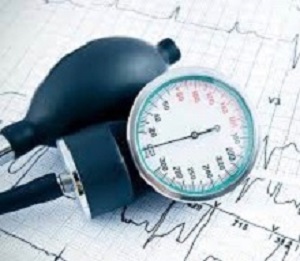 More than a third of people with high blood pressure had not been taking their blood pressure medication, found a study on a UK/Czech sample of 1,400 people.
More than a third of people with high blood pressure had not been taking their blood pressure medication, found a study on a UK/Czech sample of 1,400 people.
High blood pressure is the single most important risk factor for health loss and premature death globally, and although treatment is proven to be effective, target blood pressures are only achieved in 40%-50% of patients. This is likely to be largely caused by high numbers of patients not taking their medicines correctly, or at all.
The scientists have used a mass-spectrometry technique to examine blood and urine samples from almost 1,400 people in the UK and Czech Republic. They found that non-adherence to the blood pressure lowering drugs was high at 41.6% in the UK and 31.5% in the Czech Republic. Furthermore, with each additional prescription, the rate of non-adherence increased by 85% and 77% respectively.
Professor Maciej Tomaszewski from The University of Manchester, who led the study, said: "We suspected that some patients haven't' been taking their medications on a regular basis but this analysis shows how high that figure is. Clearly, the more blood pressure lowering drugs are prescribed, the higher the risk that the patients will not be taking them on a regular basis. We also showed that diuretics are particularly poorly taken."
The results from this analysis, show that four easy-to-collect parameters: patients' age, sex, the number of blood pressure lowering medications and the diuretics together can provide a good measure of the risk of not taking the medications on a regular basis.
The researchers believe that in the future they can develop even better formulae to estimate the risk of not taking blood pressure lowering drugs without a need of a urine/blood analysis.
This will be particularly useful in countries with limited resources, as Tomaszewski explained. "Not all countries will have sufficient expertise and the financial capacity to invest in technology that we are using."
Tomaszewski's research team has just been awarded £750,000 by the British Heart Foundation to further the understanding of non-adherence to antihypertensive treatment. Tomaszewski said: "We are thrilled by this generous award from the British Heart Foundation. Our collaborative OUTREACH study brings together the key UK centres and researchers in the field of hypertension to examine how our urine test can help patients taking their blood pressure lowering medications on a regular basis."
Abstract
Nonadherence to antihypertensive treatment is a critical contributor to suboptimal blood pressure control. There are limited and heterogeneous data on the risk factors for nonadherence because few studies used objective-direct diagnostic methods. We used high-performance liquid chromatography-tandem mass spectrometry of urine and serum to detect nonadherence and explored its association with the main demographic- and therapy-related factors in 1348 patients with hypertension from 2 European countries. The rates of nonadherence to antihypertensive treatment were 41.6% and 31.5% in the UK and Czech populations, respectively. Nonadherence was inversely related to age and male sex. Each increase in the number of antihypertensive medications led to 85% and 77% increase in nonadherence (P<0.001) in the UK and Czech populations, respectively. The odds of nonadherence to diuretics were the highest among 5 classes of antihypertensive medications (P≤0.005 in both populations). The predictive model for nonadherence, including age, sex, diuretics, and the number of prescribed antihypertensives, showed area under the curves of 0.758 and 0.710 in the UK and Czech populations, respectively. The area under the curves for the UK model tested on the Czech data and for the Czech model tested on UK data were calculated at 0.708 and 0.756, respectively. We demonstrate that the number and class of prescribed antihypertensives are modifiable risk factors for biochemically confirmed nonadherence to blood pressure–lowering therapy. Further development of discriminatory models incorporating these parameters might prove clinically useful in assessment of nonadherence in countries where biochemical analysis is unavailable.
Abstract
Pankaj Gupta, Prashanth Patel, Branislav Štrauch, Florence Y Lai, Artur Akbarov, Věra Marešová, Christobelle MJ White, Ondřej Petrák, Gaurav S Gulsin, Veena Patel, Ján Rosa, Richard Cole, Tomáš Zelinka, Robert Holaj, Angela Kinnell, Paul R Smith, John R Thompson, Iain Squire, Jiří Widimský, Nilesh J Samani, Bryan Williams, Maciej Tomaszewski
[link url="http://www.pharmpro.com/news/2017/05/more-40-percent-uk-residents-dont-take-blood-pressure-pills-researchers-find"]Pharmpro material[/link]
[link url="http://hyper.ahajournals.org/content/69/6/1113"]Hypertension abstract[/link]
